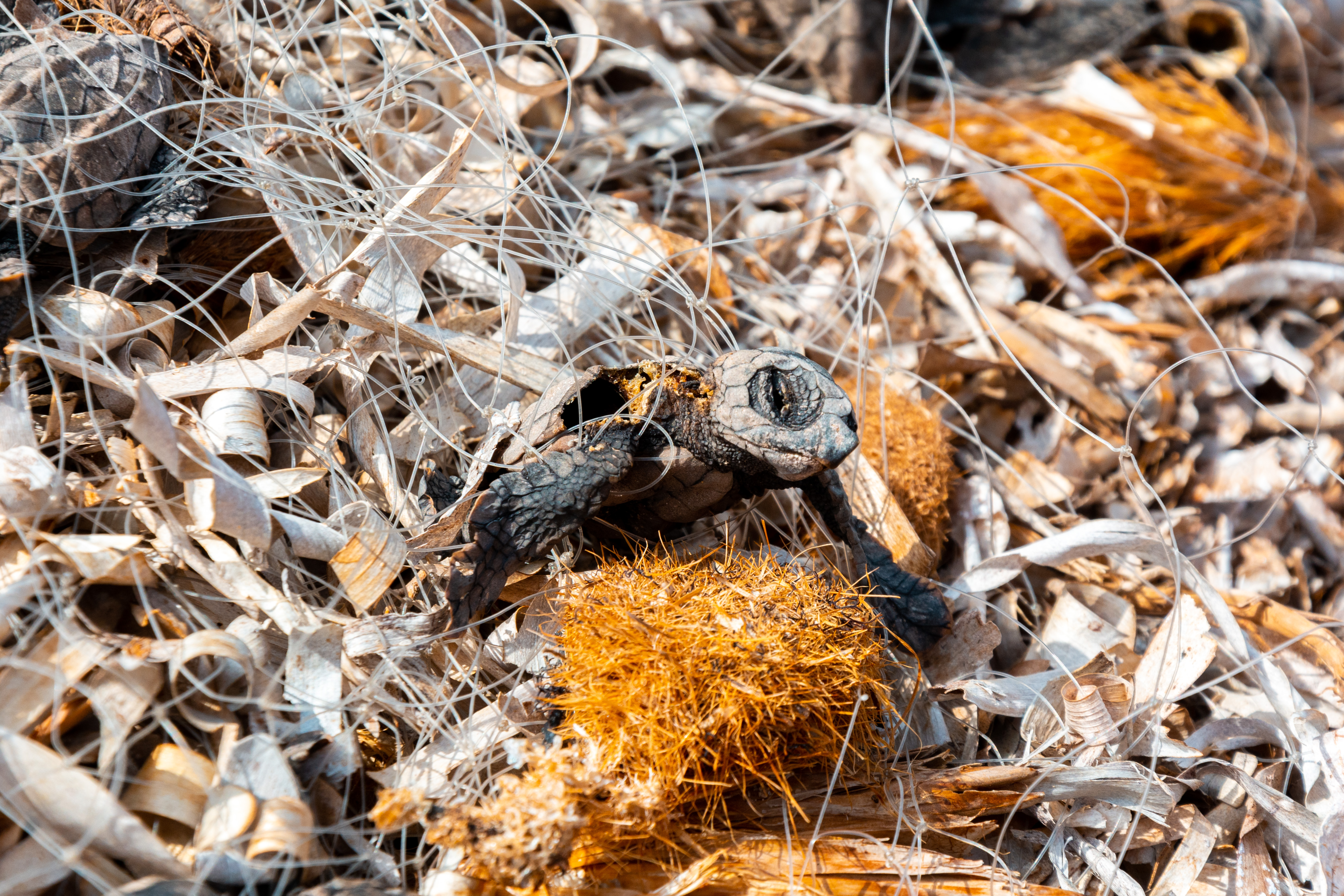Concrete steps taken against ghost fishing in the Mediterranean and the Black Sea
While the international community zeroed in on the critical importance of the environment for our future at the COP26, an important meeting focusing on the Mediterranean and Black Sea marine ecosystems and their living resources also took place last week.

The representatives of Mediterranean and Black Sea countries were meeting on the occasion of the annual session of the General Fisheries Commission for the Mediterranean (GFCM) of the Food and Agriculture Organization of the United Nations (FAO).
They adopted this weekend a total number of 21 binding recommendations and 14 resolutions aimed at enhancing efforts in support to the conservation, sustainable use and management of fisheries resources across the Mediterranean and the Black Sea, ranging from the establishment of management measures for sustainable trawl fisheries, the definition of minimum conservation reference size for priority stocks, the mitigation of fisheries impacts on vulnerable species, the establishment of fisheries restricted areas and the reporting of non-indigenous species in aquaculture.
Among these measures, the resolution addressing abandoned, lost, or otherwise discarded fishing gear is the first of its kind in the Mediterranean and the Black Sea. Ghost nets, as they are generally referred to, constitute a significant part of marine pollution, threatening sensitive habitats and posing a risk of entanglement and ingestion to marine wildlife.
In the presence of observers including non-governmental organizations such as the International Union for Conservation of Nature (IUCN), Oceana, and the World Wide Fund for Nature (WWF), the representative of the European Union noted that these devices continued to f fish long after they were abandoned, thus becoming ghost fishing gear.
To confront this recurring situation, countries have adopted a detailed procedure that fishing vessels losing their gear should follow (retrieve procedure). Furthermore, they have agreed to work on guidelines to equip ports with reception facilities for waste fishing gear. The Commission expressed its strong support to this initiative hoping that the Mediterranean and the Black Sea could pave the way for similar efforts in other marine regions of the world.
 Ghost fishing and marine pollution causing death of baby sea turtle in Monastir, Tunisia ©NGB
Ghost fishing and marine pollution causing death of baby sea turtle in Monastir, Tunisia ©NGB
A major focus on compliance to establish a level playing field
As the effectiveness of adopted recommendations in supporting the GFCM mandate is entirely reliant on their systematic transposition into national legislation by all GFCM contracting parties and cooperating non-contracting parties, and in order to send out a resolute message that these are not just commitments on paper, the GFCM also made great strides to build a culture of compliance and mutual trust.
A major focus of the annual session was to underpin the compliance framework of the Commission through the development of a solid and operational plan, which encompasses monitoring, control and surveillance and forward looking measures for the prevention of illegal, unreported and unregulated (IUU) fishing. This will ensure a prompt follow-up on concrete steps taken at the national level to ensure full adherence to the ambitious recommendations adopted and urge all countries to live up to their commitments.
Advances in the fight against illegal, unreported and unregulated fishing
Illegal, unreported and unregulated fishing remains one of the greatest threats to marine ecosystems due to its harmful impacts undermining national and regional efforts to manage fisheries sustainably as well as endeavours to conserve marine biodiversity.
To aid national coastguards, fisheries enforcement managers, governments and other regulatory bodies in identifying IUU vessels operating at sea, the GFCM was already compiling list of vessels presumed to carry out IUU fishing.
As of this weekend, this list is will be now reinforced and supplemented with all relevant information available through other regional fisheries management organizations from other seas and oceans, thereby facilitating the identification of IUU vessels by the international community, regardless of where they operate.
“The new GFCM IUU vessels list, coupled with new decisions on sighting procedures, flag States responsibilities and the deterrence of non-compliance, will enable the swift identification of all IUU vessels in other IUU vessels lists should they enter the Mediterranean and Black Sea waters,” explains Abdellah Srour, GFCM Executive Secretary. “This will improve responsiveness and allow the GFCM to immediately take resolute action against these vessels while promoting coordination with other regional fisheries management organizations. The adoption of this measure represents a major step forward for our region.”
Read more about the 44th session of the General Fisheries Commission for the Mediterranean:
- Major steps forward for fisheries in the Mediterranean and the Black Sea
- New measures to protect marine resources in the Adriatic (EN | IT)
